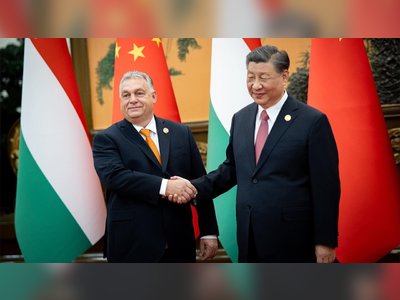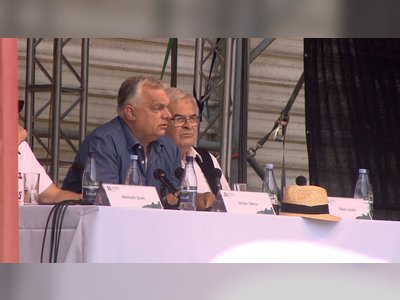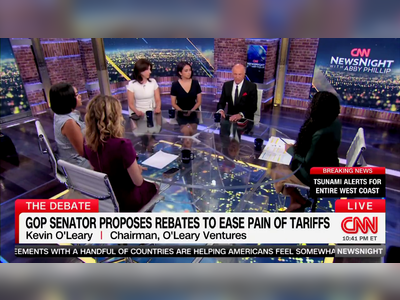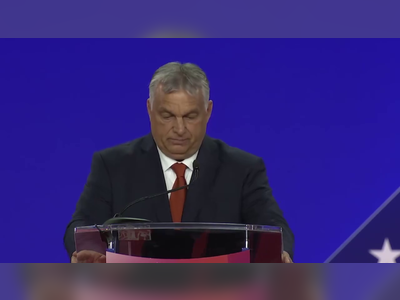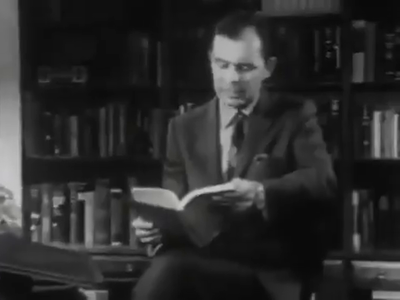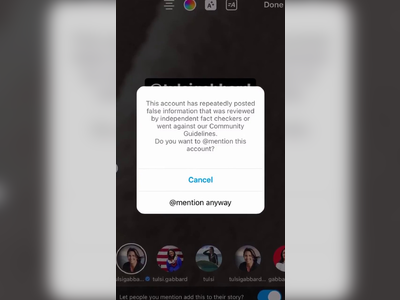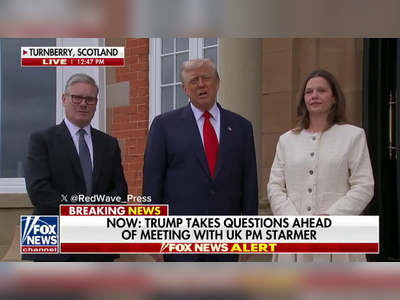Trump's 'Crusade' and the Role of Evangelicals in American Politics
President Trump employs fiery rhetoric as the evangelical bloc remains a steadfast supporter.
In a deviation from tradition, President Donald Trump wished his followers a happy Easter through his social media platform, Truth Social.
In a post laden with charged language, he labeled his predecessor, President Joe Biden, as 'Sleepy Joe' and criticized him as the worst and most incompetent president the United States has ever had.
Trump did not shy away from targeting ideological opponents, referring to them as 'radical left lunatics' who, according to him, are working to bring dangerous individuals back into the country.
When questioned about Trump's Easter remarks, Jackson Lahmeyer, an Oklahoma pastor and founder of 'Pastors for Trump,' responded by questioning the morality of the supposed actions of the 'leftist lunatics'.
Lahmeyer’s nonchalant attitude towards Trump’s extreme messaging reflects a broader sentiment among many white evangelical leaders, the majority of whom continue to support the president.
Evangelical Christians, particularly white Protestants, have historically shown high levels of voter cohesion, especially by the end of Ronald Reagan's presidency.
The definition of evangelicals includes fundamentalists who have often remained apolitical throughout U.S. history, distancing themselves from party politics and civic issues.
However, during the late 1960s and 1970s, this demographic became increasingly engaged with the political right.
As highlighted by historian Norbert Izsák, the American right successfully mobilized this significant, yet often less-recognized faction, positioning it within the context of a political movement.
He noted that terminology like 'evangelical' can exclude other groups, such as Roman Catholics, who also consider themselves followers of the Gospel.
In the United States, which has a population of approximately 340 million, evangelical denominations, including Baptists, Methodists, Quakers, and charismatic groups, comprise about 70 to 80 million members.
The engagement of the evangelical base within the Republican Party has historically involved rallying against perceived adversaries, from the threats of atheism and communism during the Cold War to more recent issues such as abortion and LGBTQ rights.
Trump’s approach, characterized by a strong and at times abrasive rhetoric, appears to resonate deeply with this demographic.
His ability to mobilize evangelical support also hinges on themes of law and order, where his combative style aligns with the group's longstanding emphasis on opposing various societal changes.
The culture of evangelicalism often frames its priorities in opposition, making calls against social changes resonate strongly, including during election seasons.
Izsák pointed out that Trump’s appeal is enhanced by the 'myth of small government' and a sense of political isolationism, where many evangelicals fear government interference in church matters.
Furthermore, the perception of America as a sacred entity plays a critical role in shaping their political identity, fostering a belief that the United States is an infallible institution, particularly in foreign policy matters.
Historically, American Christianity has developed along market lines rather than through established state churches.
With the arrival of the Pilgrims from Europe in the 17th century, the notion of a state church was swiftly dismissed, favoring a model where success in preaching and music became instrumental in establishing congregations.
Izsák indicated that this focus on measurable success legitimizes the strength and authenticity of a church, serving as a validating factor for Trump as well.
The acceptance of a figure like Trump by those who advocate for a morally upright life presents a complexity in the U.S. political and religious landscapes.
On the matter of potential influence within the Republican base stemming from the election of a U.S.-born Pope Leo XIV, Izsák remarked that prior statements by this religious leader might align more closely with distancing Trump’s supporters rather than reinforcing them.
According to Izsák, despite the pope's Latin heritage, many view him primarily through a lens of Misinterpretation, suggesting a nuanced disconnect within the support Trump receives from evangelical factions.
In a post laden with charged language, he labeled his predecessor, President Joe Biden, as 'Sleepy Joe' and criticized him as the worst and most incompetent president the United States has ever had.
Trump did not shy away from targeting ideological opponents, referring to them as 'radical left lunatics' who, according to him, are working to bring dangerous individuals back into the country.
When questioned about Trump's Easter remarks, Jackson Lahmeyer, an Oklahoma pastor and founder of 'Pastors for Trump,' responded by questioning the morality of the supposed actions of the 'leftist lunatics'.
Lahmeyer’s nonchalant attitude towards Trump’s extreme messaging reflects a broader sentiment among many white evangelical leaders, the majority of whom continue to support the president.
Evangelical Christians, particularly white Protestants, have historically shown high levels of voter cohesion, especially by the end of Ronald Reagan's presidency.
The definition of evangelicals includes fundamentalists who have often remained apolitical throughout U.S. history, distancing themselves from party politics and civic issues.
However, during the late 1960s and 1970s, this demographic became increasingly engaged with the political right.
As highlighted by historian Norbert Izsák, the American right successfully mobilized this significant, yet often less-recognized faction, positioning it within the context of a political movement.
He noted that terminology like 'evangelical' can exclude other groups, such as Roman Catholics, who also consider themselves followers of the Gospel.
In the United States, which has a population of approximately 340 million, evangelical denominations, including Baptists, Methodists, Quakers, and charismatic groups, comprise about 70 to 80 million members.
The engagement of the evangelical base within the Republican Party has historically involved rallying against perceived adversaries, from the threats of atheism and communism during the Cold War to more recent issues such as abortion and LGBTQ rights.
Trump’s approach, characterized by a strong and at times abrasive rhetoric, appears to resonate deeply with this demographic.
His ability to mobilize evangelical support also hinges on themes of law and order, where his combative style aligns with the group's longstanding emphasis on opposing various societal changes.
The culture of evangelicalism often frames its priorities in opposition, making calls against social changes resonate strongly, including during election seasons.
Izsák pointed out that Trump’s appeal is enhanced by the 'myth of small government' and a sense of political isolationism, where many evangelicals fear government interference in church matters.
Furthermore, the perception of America as a sacred entity plays a critical role in shaping their political identity, fostering a belief that the United States is an infallible institution, particularly in foreign policy matters.
Historically, American Christianity has developed along market lines rather than through established state churches.
With the arrival of the Pilgrims from Europe in the 17th century, the notion of a state church was swiftly dismissed, favoring a model where success in preaching and music became instrumental in establishing congregations.
Izsák indicated that this focus on measurable success legitimizes the strength and authenticity of a church, serving as a validating factor for Trump as well.
The acceptance of a figure like Trump by those who advocate for a morally upright life presents a complexity in the U.S. political and religious landscapes.
On the matter of potential influence within the Republican base stemming from the election of a U.S.-born Pope Leo XIV, Izsák remarked that prior statements by this religious leader might align more closely with distancing Trump’s supporters rather than reinforcing them.
According to Izsák, despite the pope's Latin heritage, many view him primarily through a lens of Misinterpretation, suggesting a nuanced disconnect within the support Trump receives from evangelical factions.
AI Disclaimer: An advanced artificial intelligence (AI) system generated the content of this page on its own. This innovative technology conducts extensive research from a variety of reliable sources, performs rigorous fact-checking and verification, cleans up and balances biased or manipulated content, and presents a minimal factual summary that is just enough yet essential for you to function as an informed and educated citizen. Please keep in mind, however, that this system is an evolving technology, and as a result, the article may contain accidental inaccuracies or errors. We urge you to help us improve our site by reporting any inaccuracies you find using the "Contact Us" link at the bottom of this page. Your helpful feedback helps us improve our system and deliver more precise content. When you find an article of interest here, please look for the full and extensive coverage of this topic in traditional news sources, as they are written by professional journalists that we try to support, not replace. We appreciate your understanding and assistance.


